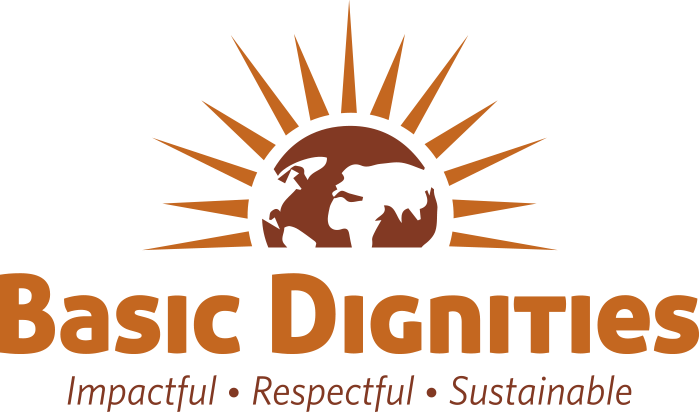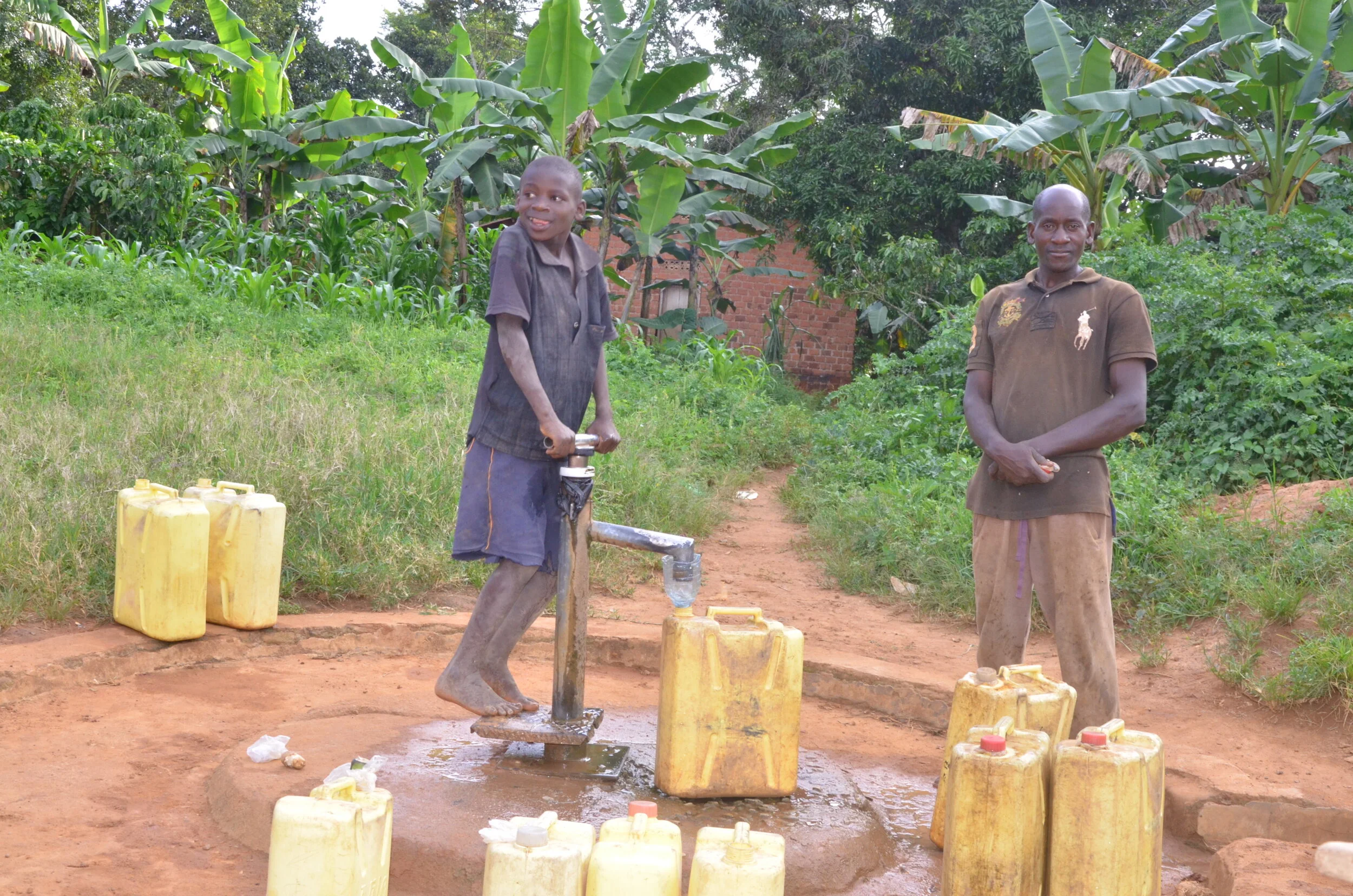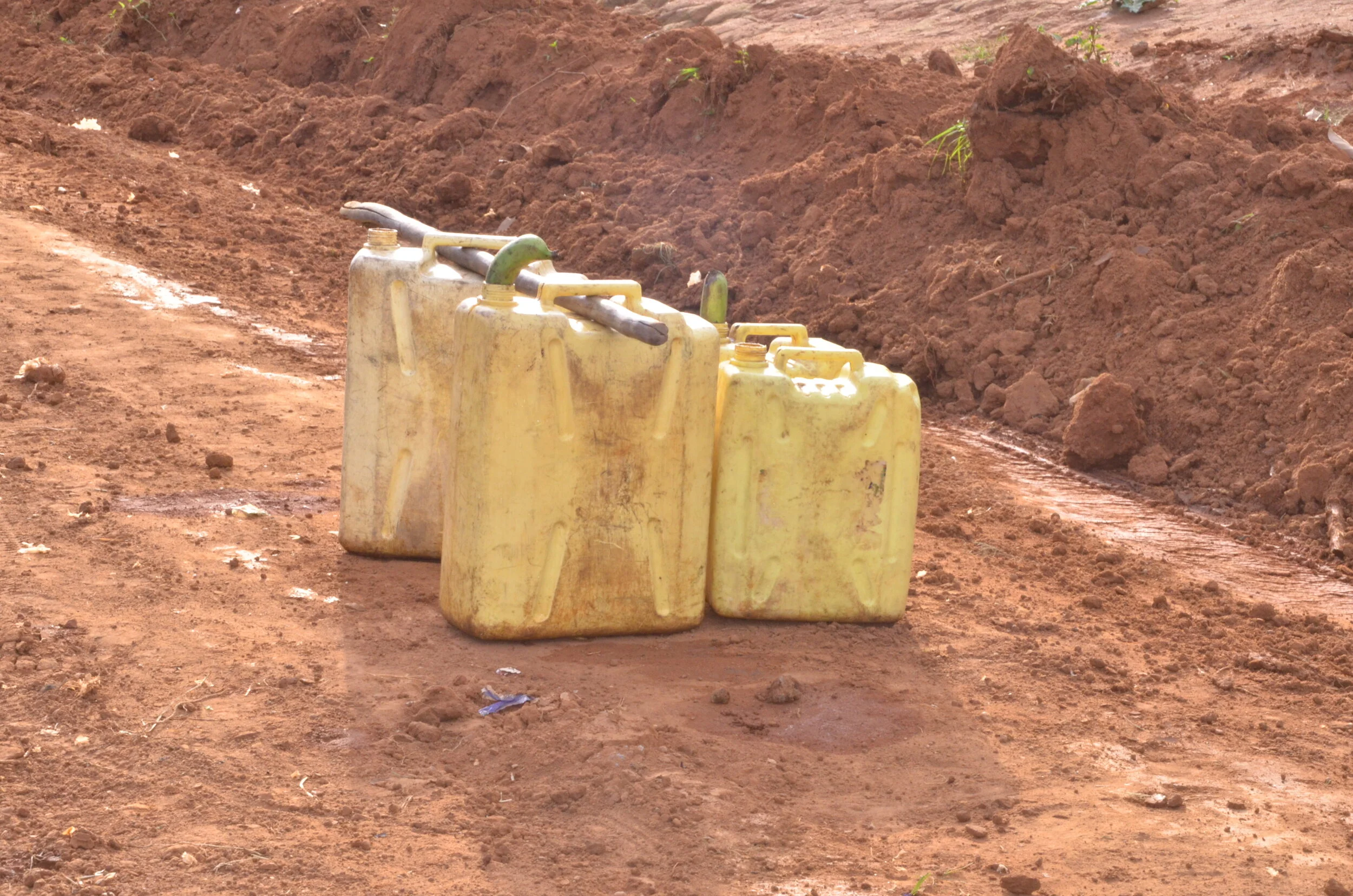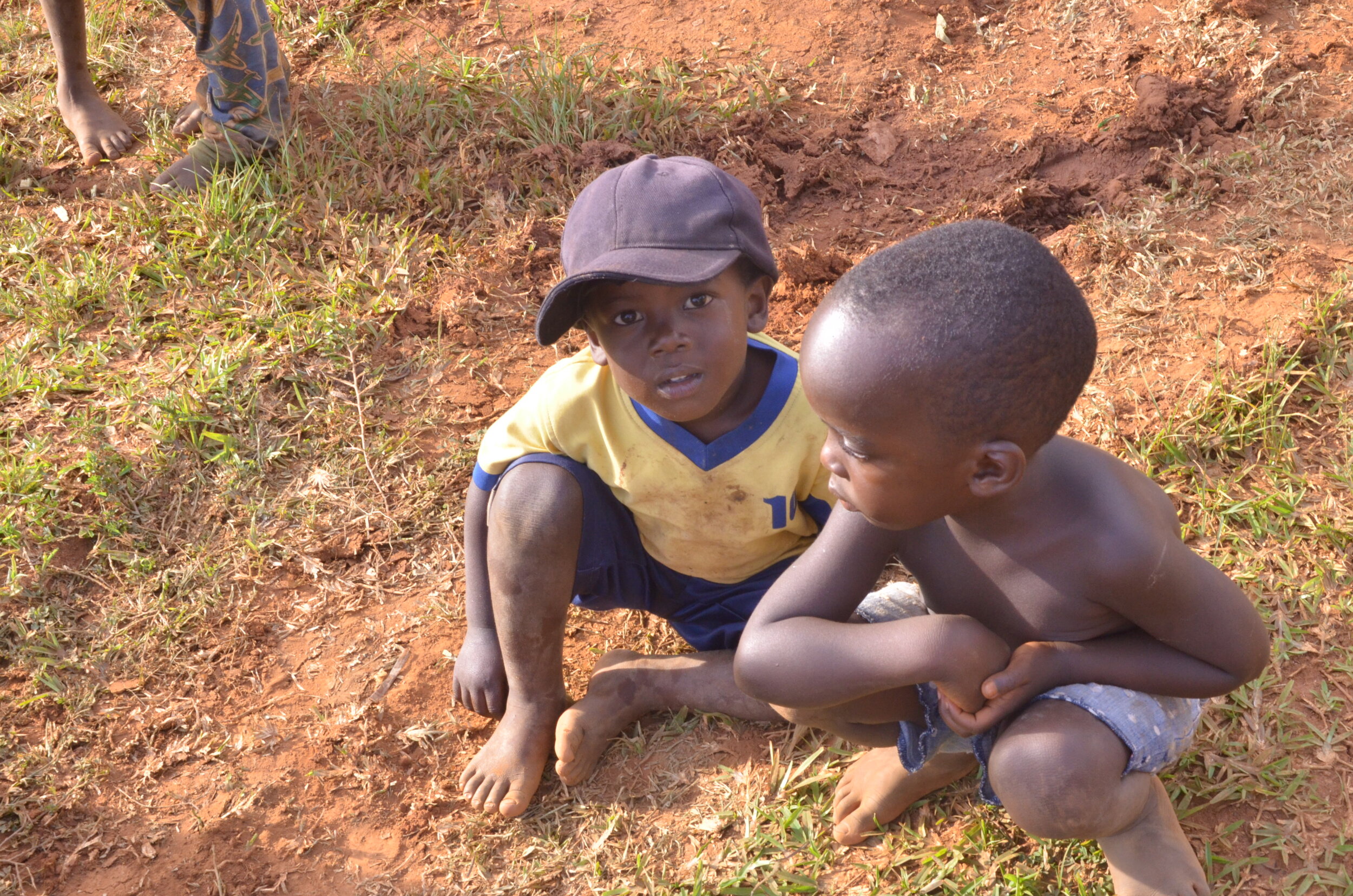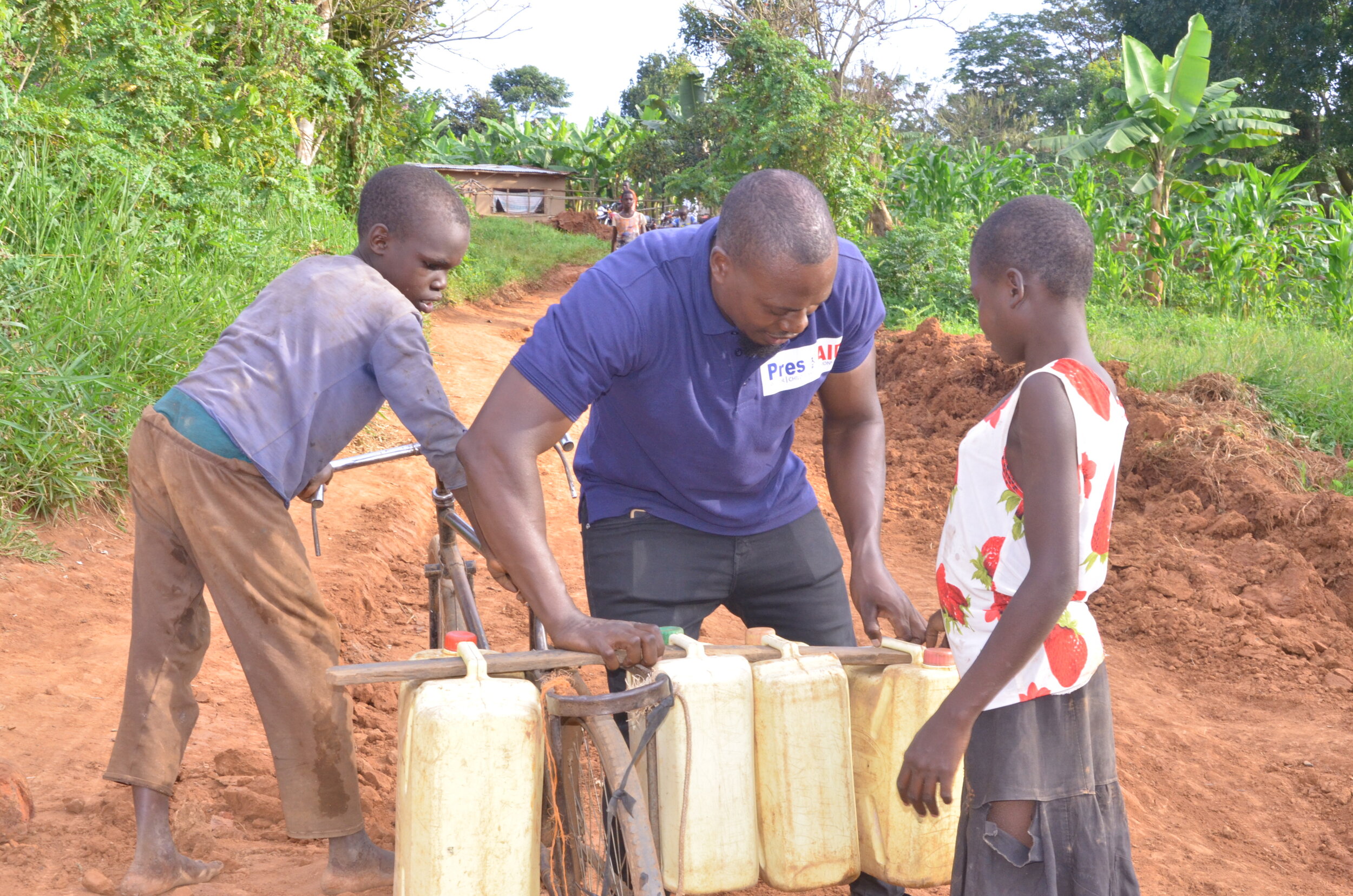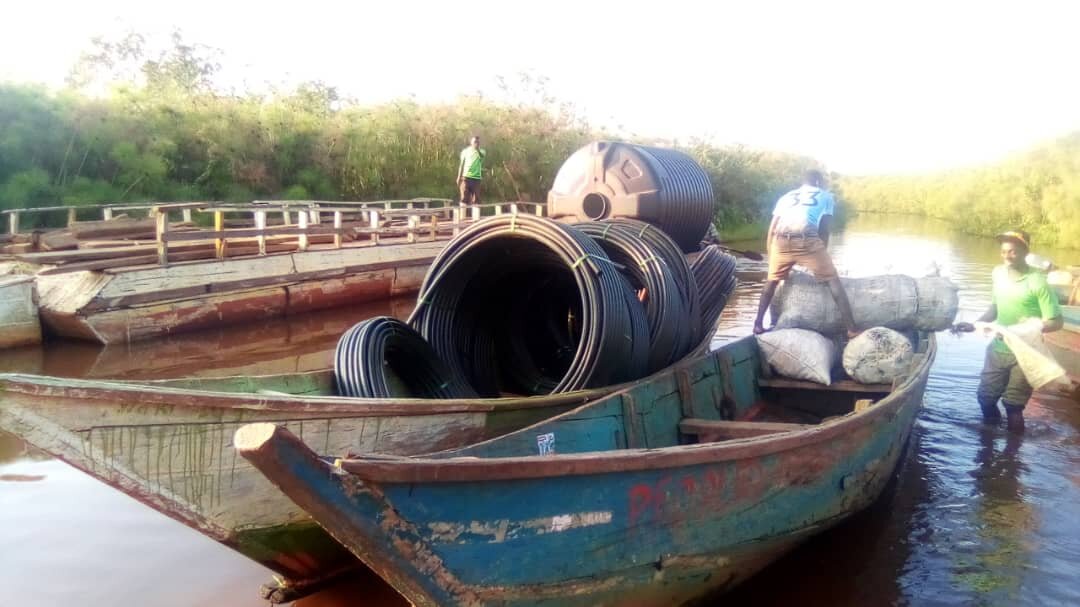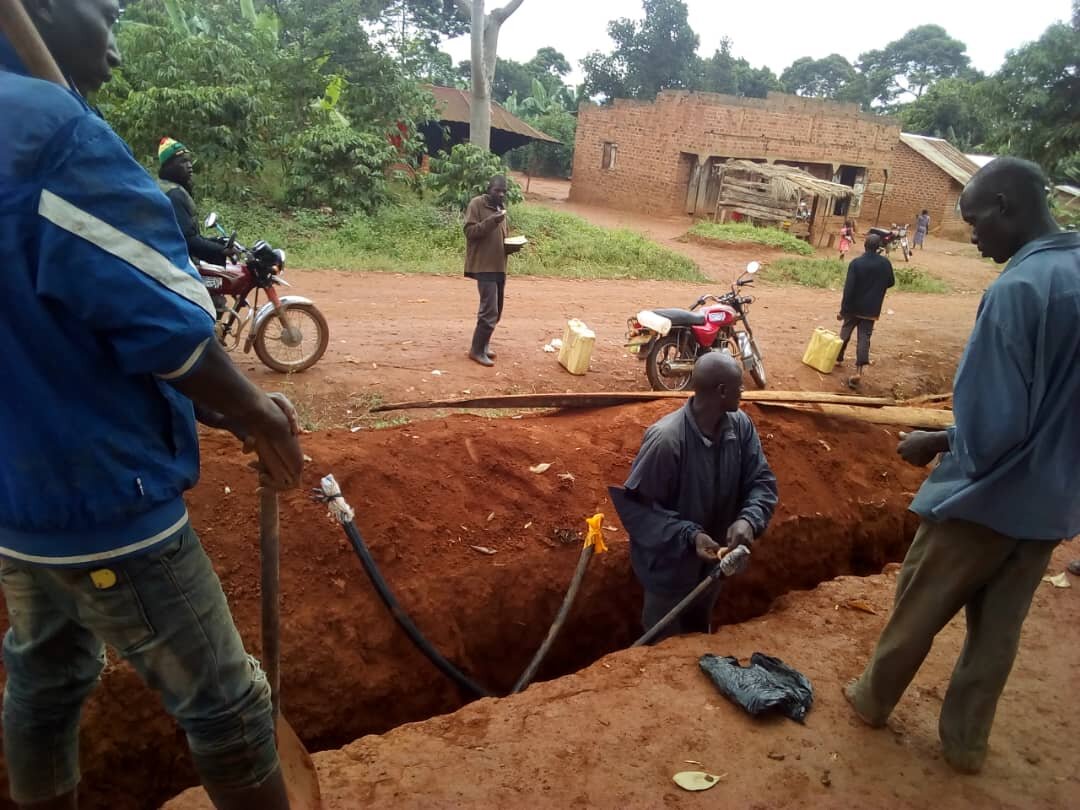Bussi Fishing Village
A Ugandan Clean Water Project
Project Details
Basic Dignities partnered with the Ugandan non-profit agency, PresAID Uganda, and the Bussi Fishing Village on Lake Victoria in Uganda to bring safe drinking water to the residents. Bussi Fishing Village is a remote community currently undergoing a severe drought. The population is 2,340 of which over 80% are youth. Lake Victoria was previously used for drinking water; however, the lake is contaminated with dangerous organisms that can cause typhoid, dysentery, cholera, and other water-borne illnesses.
Basic Dignities and PresAID Uganda installed a water treatment system with a solar-powered pump at a cost of approximately $26,400 (which breaks down to a mere $11 per person). This included the system installation and initialization, sustainability training for local personnel, health and hygiene training (training local individuals who then trained the rest of the community), and a year of monitoring and evaluation with PresAID Uganda.
Local workmen were hired to install the system under the guidance of experienced staff from PresAID Uganda. The system was constructed from as many local materials as possible to help the local economy.
“Providing what the community needs and not what we THINK they need is the heart of Basic Dignities.”
Brittany Sterling I President
Budget Breakdown: Where does your money go?
Our goal is to make sure that the money our donors provide is creating a long-lasting, sustainable project that the community can maintain and use for years to come. There are a few key steps to implementing a sustainable water system:
Because electricity is not always available in rural Uganda, it is important to make sure the community can access clean water even when the power is out. Our solution? A solar-powered pump.
Community involvement is critical to the success of a project of this scope. The more involved the community is in this project, the easier it will be for them to take ownership of the well when the project is completed and continue maintaining it when we are gone. That’s why we aim to use as many local materials and workers as possible to construct the system.
Sometimes projects fail because the community does not understand their water system or know how to maintain it. To help with this process, we budget for a year of training with PresAID Uganda. This will allow a member of PresAID to travel back to the community as needed to show community members how to change filter media, replace chlorine cartridges, fix piping, or otherwise troubleshoot the system and make sure it is operating properly.
Want to hear more about the project? Noel Thomas, the country coordinator for PresAID Uganda, shares his thoughts on the project in the video to the left. Noel and his team were instrumental in getting the water system designed, installed and constructed.
PresAID Uganda continues to do various projects throughout Uganda to help people in need. To learn more about PresAID Uganda, please visit their Linkedin profile at PresAID Uganda - Participatory Approach In Comunity Development - PresAID Uganda | LinkedIn.
